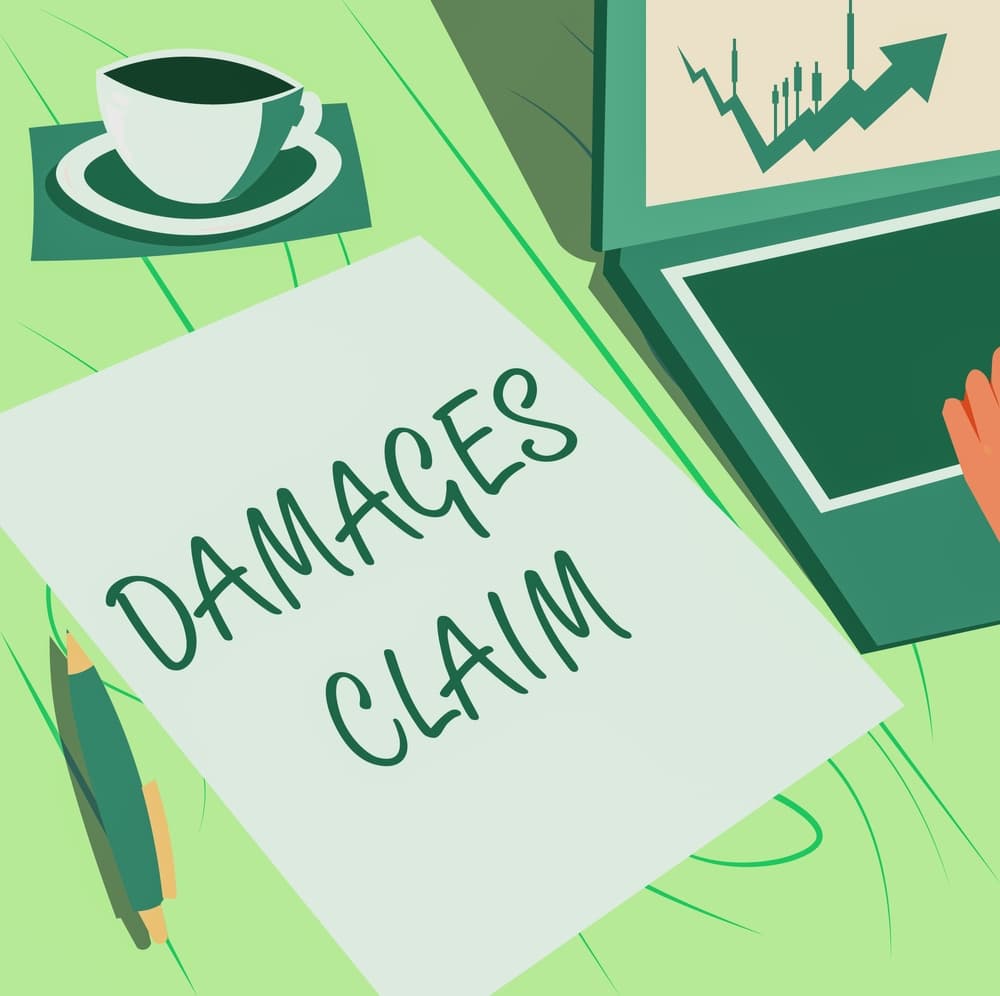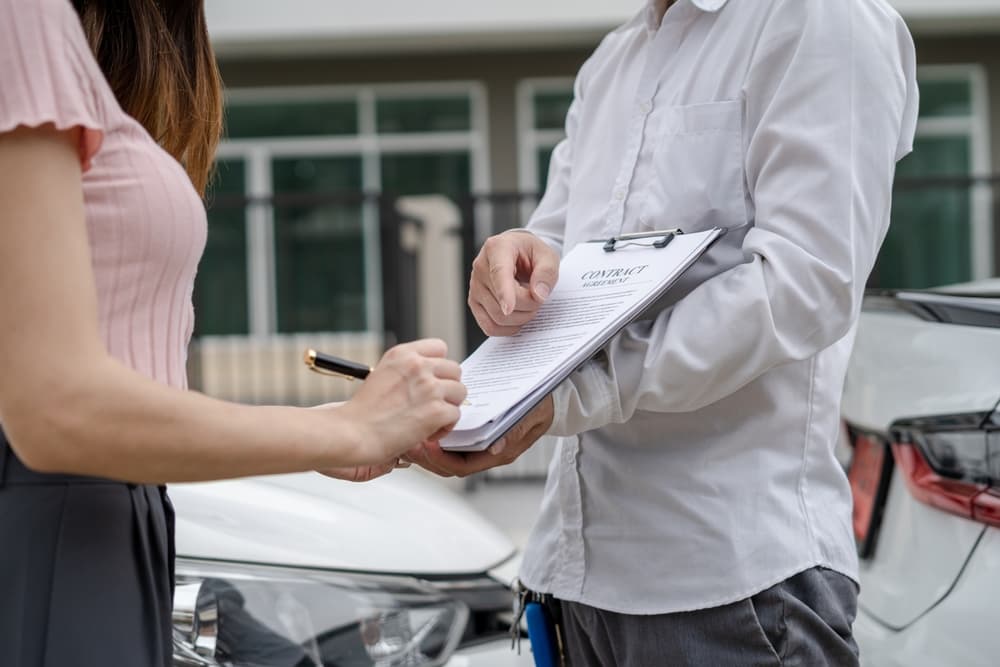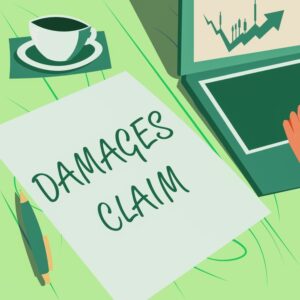Yes. If a negligent or reckless driver caused a car accident that injured you or killed a close family member, California law allows you to sue the at-fault driver in civil court to recover damages. However, in most cases, injured parties first seek compensation by filing a personal injury claim with the at-fault driver’s insurance company. Most personal injury claims settle before ever reaching court.
That said, there are times when you need to take the at-fault party to court and sue for the compensation you deserve. Each case is different, and various factors can influence whether you need to sue the at-fault driver in court.
We’ll explore some of these scenarios below. To get a full evaluation of your claim and answers to your specific questions regarding your car accident case, consult an experienced car accident attorney in your area.
Factors to Consider About Pursuing Compensation After a Car Accident in California
Before filing a lawsuit, it’s essential to understand certain aspects of California’s legal system and the personal injury claims process:
At-Fault System
California follows an at-fault system, meaning the party responsible for the accident is typically held liable for damages. The at-fault driver’s insurance is generally responsible for covering the injured party’s medical expenses, vehicle repairs, and other losses.
Threshold for Lawsuits
In many cases, you must first pursue a claim through the at-fault driver’s insurance before considering a lawsuit. California law sets a financial threshold for filing a lawsuit related to personal injuries. Generally, you can file a lawsuit if your damages exceed a certain monetary threshold, such as medical expenses exceeding $7,500.
Personal Injury Protection (PIP)
California is not a no-fault state, which means there is no personal injury protection (PIP) coverage requirement. However, PIP coverage might still be available as an option in your insurance policy, and it could affect your ability to sue for certain damages.
Comparative Negligence
California follows a comparative negligence system, which means your compensation can be reduced if you are found partially at fault for the accident. However, as long as you are not primarily responsible, you can still pursue a claim.
What Circumstances Necessitate Suing an At-Fault Driver in Court?

Suing an at-fault driver in court after a car accident in California may be necessary under certain circumstances. Here are some factors that could necessitate taking legal action:
- Severe Injuries: If you have suffered significant injuries that result in substantial medical expenses, ongoing rehabilitation costs, or long-term disabilities, it may be necessary to file a lawsuit to seek compensation beyond what the at-fault driver’s insurance policy covers.
- Disputed Liability: If there is a dispute regarding liability, and the at-fault driver’s insurance company refuses to accept responsibility or offers an inadequate settlement, filing a lawsuit may be necessary to establish the other driver’s fault through the legal process.
- Insurance Policy Limits: If the at-fault driver’s insurance policy limits are insufficient to cover your damages, you may need to sue the driver directly to pursue additional compensation. This situation often arises in cases of severe injuries or significant property damage.
- Uninsured or Underinsured Motorist Coverage: If you have uninsured or underinsured motorist coverage as part of your own insurance policy, you may be able to file a lawsuit against your own insurance company if the at-fault driver is uninsured or lacks sufficient coverage.
- Wrongful Death: If the accident resulted in the death of a loved one, the surviving family members may choose to file a wrongful death lawsuit against the at-fault driver to seek compensation for funeral expenses, lost financial support, and emotional distress.
- Pain and Suffering: In some cases, you may be entitled to compensation for pain and suffering, emotional distress, and other non-economic damages that exceed the at-fault driver’s insurance policy limits. Pursuing these damages may require filing a lawsuit.
- Bad Faith Insurance Practices: If the at-fault driver’s insurance company engages in bad faith practices, such as unjustly denying a valid claim or failing to negotiate in good faith, you may have grounds for a lawsuit against the insurance company.
- Inadequate Settlement Offers: If the insurance company offers a settlement that does not adequately cover your losses and refuses to negotiate a fair settlement, filing a lawsuit may be necessary to pursue the compensation you deserve.
Before deciding to sue, it’s essential to consult a personal injury attorney. An experienced attorney can assess the specific details of your case, advise you on the best course of action, and help you navigate the legal process to maximize your chances of obtaining fair compensation.
Car Accident Lawsuits Resulting from Defective Components
Not all car accidents result from careless or reckless drivers. Sometimes, a defective component in the car fails and causes or contributes to the accident. In these cases, you may pursue legal action against the manufacturers, distributors, or other entities responsible for the defective part, which may include the car manufacturer.
Keep in mind that these types of cases typically fall under product liability, and some attorneys don’t handle these types of claims. Product liability claims can be highly complex and challenging to successfully navigate. Ask about whether an attorney handles product liability claims before proceeding.
Providing your attorney can assist you in pursuing compensation from a product manufacturer, they will need to prove the defective device caused the crash. A lawyer needs to establish whether the defect occurred due to design flaws, manufacturing defects, inadequate warnings, or other factors.
Attorneys may engage expert witnesses, such as engineers or automotive specialists, to provide testimony on the defect and its role in causing the accident. It’s crucial not to repair or modify the vehicle until evidence has been properly documented. Preserving the vehicle and the defective part is essential for a thorough investigation.
Product liability cases may involve proving negligence, strict liability, or breach of warranty. An attorney needs to determine the parties that may bear liability for the defective component. In most cases, an attorney will attempt to negotiate a fair settlement with the insurance companies that cover the parts manufacturer or other defendants. If negotiations prove unfruitful, your attorney can sue them in court.
If the defective component is part of a larger issue affecting multiple vehicles, individuals may join a class-action lawsuit. This can be more efficient and cost-effective for addressing widespread defects.
What Types of Damages Can I Receive If I Take My Car Accident Case to Trial?

If you decide to take your car accident case to trial in California and are successful, you could receive various types of damages to compensate for your losses. The specific damages awarded can depend on the circumstances of your case. Generally, there are two main categories of damages: economic and non-economic. Here are the types of damages you may receive:
Economic Damages
- Medical Expenses: Compensation for past and future medical bills, including hospital stays, surgeries, medications, rehabilitation, and other necessary treatments.
- Lost Income: Reimbursement for income lost due to the accident, including lost wages, bonuses, and other employment benefits.
- Property Damage: Compensation for the repair or replacement of your damaged vehicle and other personal property.
- Future Expenses: If the accident results in ongoing medical care or future anticipated expenses, you may be awarded damages to cover those costs.
Non-Economic Damages
- Pain and Suffering: Compensation for physical pain, emotional distress, and psychological suffering caused by the accident and resulting injuries.
- Loss of Consortium: Damages awarded for the negative impact the injuries have on the relationship between spouses or family members.
- Loss of Enjoyment of Life: Compensation for the reduction in the quality of life experienced due to the injuries sustained in the accident.
- Disfigurement or Scarring: Damages awarded for visible, permanent physical changes that result from the accident and impact your appearance.
Punitive Damages
In rare cases, a court may award punitive damages if it finds the at-fault party acted with egregious negligence, willful misconduct, or intentional harm. Punitive damages are not focused on compensating the victim but rather punishing the wrongdoer and deterring similar conduct in the future.
To navigate the legal process effectively and maximize your chances of obtaining fair compensation, hire an experienced personal injury attorney. A lawyer can help assess the merits of your case, guide you through the legal proceedings, and advocate on your behalf in court.
How Long Do I Have to File a Personal Injury Lawsuit in California?
California has a statute of limitations for personal injury claims, typically allowing two years from the date of the accident to file a lawsuit. Missing this deadline can result in the loss of your right to seek compensation.
If you believe a government agency was responsible for the car crash and wish to seek compensation, you must file your claim within six months of the date of your injury. The government entity then has 45 days to respond. If they deny your claim, you have six months from the date you received the denial or two years from the accident if you didn’t receive a rejection letter.
Contact an Experienced California Car Accident Attorney for Help

The time following a car accident that injured you can be stressful, and you may want immediate justice for the pain and suffering you’ve endured. While it’s important to get started on your claim right away, you also have many factors to consider and certain steps you must follow to successfully pursue compensation.
An experienced personal injury attorney from Banderas Law can evaluate your claim at no cost, advise you of your options, and help you navigate the process. Our attorneys have more than 20 years of legal experience, and we have obtained substantial settlements and verdicts for our clients.
You can rely on us to advocate for you throughout all stages of the process to help you obtain maximum compensation. We are also fully committed to fighting for you in court if necessary to help you get the money you deserve.
Contact us today for a free consultation.




